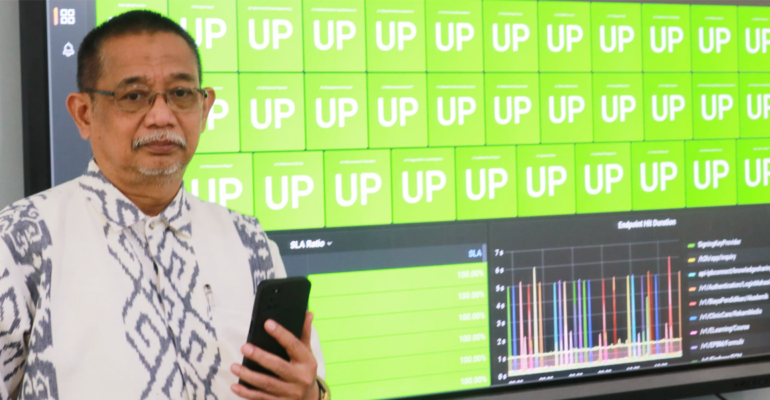Prof Lala Kolopaking Explains the Role of Rural Digital Social Innovation in Enriching Indonesian Social Science

The development of digital technology needs to have a direction so that it can be useful as a source of rapid and good social change to encourage the sustainability of economic-social life and natural resources and the environment of communities in cities and villages.
Prof Lala M. Kolopaking, Lecturer of Science Communication Community Development (SKPM) Faculty of Human Ecology (Fema) IPB University explained that rural sociology has the potential to take a role as a technology developer to digital social innovation. The statement was explained at the Pre-Scientific Oration Activity on Thursday, 14/12 online.
He explained that rural digital social innovation is defined as a digitalization step to develop participation and involve the community democratically to realize collective social and political actions to solve social problems and improve the welfare of the nation in Indonesia.
“Rural Digital Social Innovation is not a product, but a process developed based on research to maintain social values that maintain a balanced economy with social policies,” said Prof Lala.
“Rural Sociology developed at IPB University gives its color to the development and development of social science. The term “Bogor Mazhab” sociology is attached based on the study of empirical facts raised within the framework of sociological theory and the results are used to track solutions to social problems, to then become a sociological theory,” he said.
He continued, historically rural sociology was developed based on the synthesis of two approaches, namely clinical sociology and engineering sociology to find solutions to problems in Indonesia.
“Education and teaching of rural sociology is based on research-based education and community development in remote areas of the archipelago. The process is also a means of expanding theories, and concepts of social sciences in the context of Indonesia,” said the lecturer of Fema IPB University.
He revealed that the digitalization of social innovation is a necessity. Research on various villages in Java and outside Java proves that a prosperous digital ecosystem needs to be developed and starts from the countryside.
“The internationalization of ideas from digitalization drivers in various aspects of life needs to be revived. It is in this context that digital social innovation is important to develop so that it can be more useful so that people are able to build and manage the resources they control in a sustainable manner,” he said.
Prof Lala continued, digital transformation is not only measured as a driver of economic growth but also as a driver of equity based on the use of local resources to generate Indonesia’s local economy.
“Thus, rural digital social innovation is also an entry point for the development of research, education, and community development in enriching Indonesian social science,” she concluded. (Lp) (IAAS/SHY)



